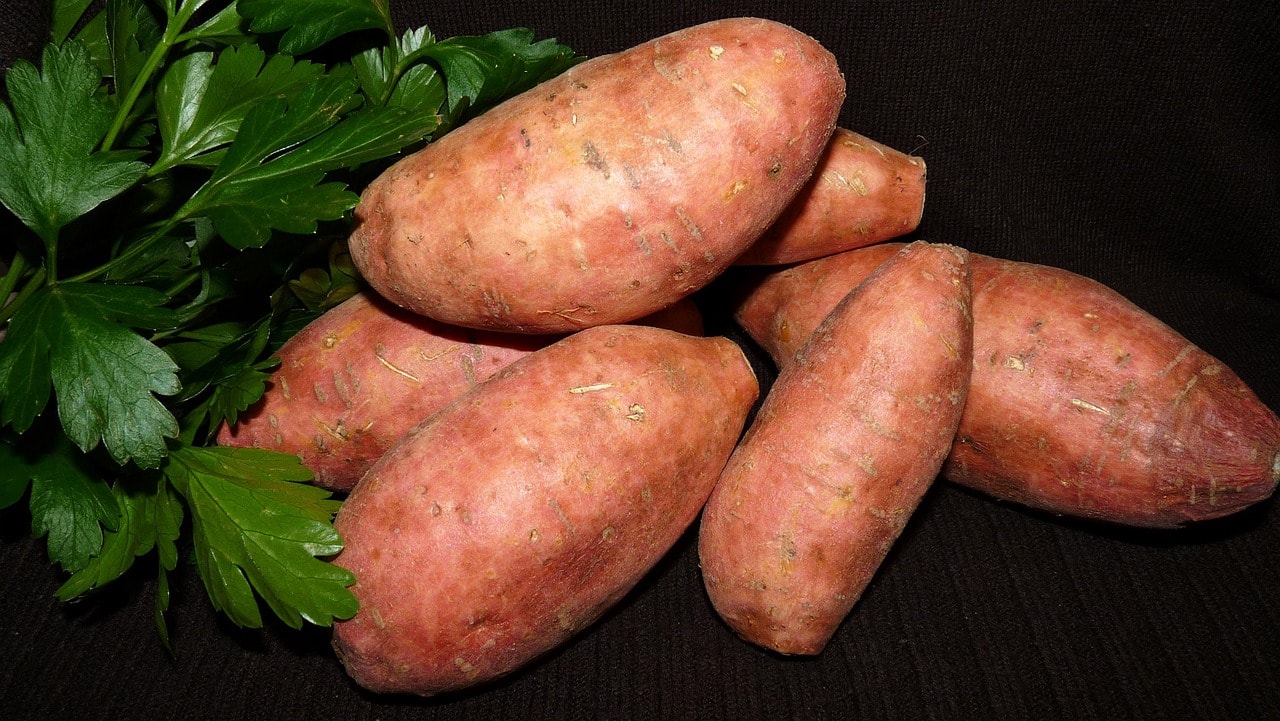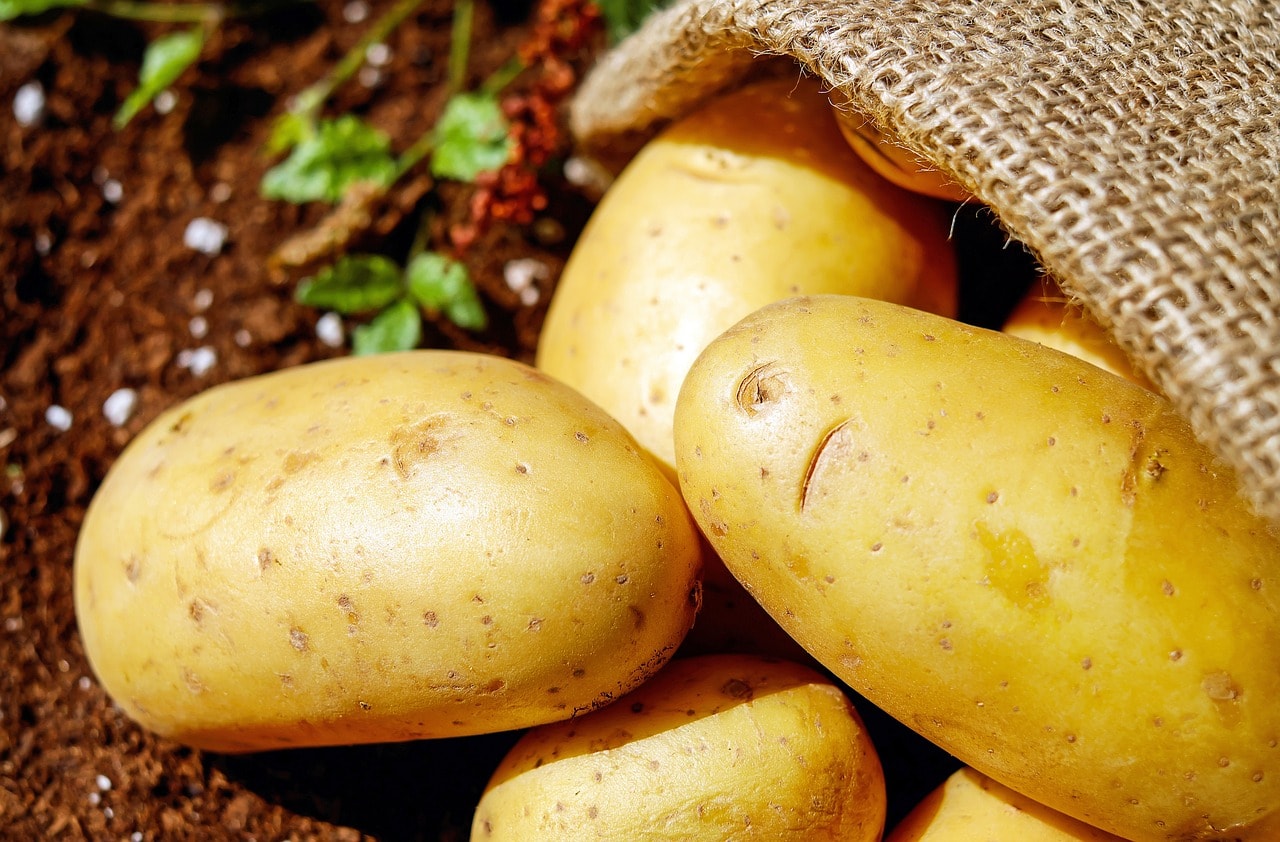When I first tried a sweet potato, I was amazed at how something so simple could taste so good. If you’re like me, you might already love these wonders. Sweet potatoes are not just tasty but also packed with incredible health benefits.
Whether you enjoy them roasted, mashed, or baked, they’re a must-have food that deserves a place on your plate. Let’s explore the world of sweet potatoes, uncover their nutritional value, and health benefits, and learn how to prepare them in the most delicious ways.
Sweet Potato Nutrition Facts

Have you ever wondered why sweet potatoes are so highly praised? It’s because they are nutritional powerhouses. Sweet potatoes are rich in vitamins, minerals, and fiber. They are particularly high in vitamin A, which is excellent for your eyesight. The nutritional value of sweet potatoes doesn’t stop there; they’re also a good source of vitamin C, potassium, and manganese.
Is there any Protein in Sweet Potatoes?
One thing I always like to point out is the protein in sweet potatoes. While they may not be as protein-packed as meat or beans, sweet potatoes still contain enough protein to contribute to your daily needs, especially when paired with other foods.
When you think of sweet potato benefits, remember that this root vegetable supports your immune system, digestion, and even your skin health.
Highly Nutritious
Sweet potatoes are a great source of fiber, vitamins, and minerals. Sweet potatoes are rich in a variety of essential nutrients. They contain vitamin A, vitamin C, manganese, copper, pantothenic acid, vitamin B6, potassium, and niacin, making them a highly nutritious addition to any meal.
One cup, or 200 grams of baked sweet potato with skin provides:
- Water: 152
- Calories: 180
- Carbs: 41 g
- Protein: 4 g
- Fat: 0.3 g
- Fiber: 6.6 g
Health Benefits of Sweet Potatoes

When I was younger, I thought sweet potatoes were just another side dish. Now, I know better. Sweet potato benefits go far beyond their taste. One major advantage of sweet potatoes is their role in promoting heart health. They contain antioxidants that help reduce inflammation and lower your risk of heart disease.
1. Support Digestive Health
Imagine your digestive system as a busy highway, where everything needs to move smoothly without any traffic jams. Now think of sweet potatoes as the traffic controllers, ensuring that everything flows just right.
The fiber in sweet potatoes plays a significant role here. They contain both soluble and insoluble fiber, and what’s fascinating is that neither type is broken down by your body. Instead, they stay in the digestive tract, acting like little helpers that keep things moving efficiently. Soluble fiber absorbs water, making everything soft and easy to pass, while insoluble fiber adds bulk and keeps your gut muscles active.
But there’s more! Sweet potatoes also come with antioxidants, like superheroes for your digestive health. They protect your gut from inflammation and keep it balanced. So, the next time you enjoy a sweet potato, picture it as a team of dedicated workers ensuring your digestive highway stays clear and smooth.
Research has shown that antioxidants in purple sweet potatoes encourage the growth of beneficial gut bacteria, such as Bifidobacterium and Lactobacillus species.
2. Promote Healthy Vision
Sweet potatoes are packed with beta carotene, the antioxidant that gives them their vibrant orange color. Your body converts beta carotene into vitamin A. Vitamin A deficiency, can lead to a form of blindness known as xerophthalmia. Consuming foods rich in beta carotene, like orange-fleshed sweet potatoes, may help prevent this condition
Are sweet potatoes good for your eyes?
Yes, sweet potatoes are excellent for eye health. They are rich in vitamin A, which is essential for maintaining good vision and preventing eye-related issues such as dryness and night blindness. Eating sweet potatoes can help support your overall eye health.
3. Maintaining Healthy Blood Pressure Levels
The American Heart Association (AHA) advises limiting foods high in added salt and opting for potassium-rich foods to support a healthy cardiovascular system.
A 124 g serving of mashed sweet potato contains 259 milligrams (mg) of potassium, which is about 5% of the daily potassium requirement for an adult. Current guidelines recommend that adults consume 4,700 mg of potassium daily.
Sweet Potatoes vs. Regular Potatoes: A Comparison

Let’s talk about the age-old debate: sweet potatoes versus regular potatoes. I’ve had both, and while each has its charm, sweet potatoes come with some unique advantages. The nutritional value of sweet potatoes is higher in terms of vitamin A, fiber, and antioxidants compared to regular potatoes.
If you’re someone who loves variety, you’ll appreciate how sweet potatoes can be used in both savory and sweet dishes. While regular potatoes are versatile too, the advantage of sweet potatoes lies in their natural sweetness and vibrant color.
Just like regular potatoes can turn into fries, sweet potatoes also make crispy, delicious fries. Sweet potato fries are crispy and golden brown, and you may enjoy them as a tasty snack or side dish.
Why are sweet potatoes considered better than regular potatoes for steady energy levels?
Regular potatoes are often criticized for their high starch content, which can spike your blood sugar levels. On the other hand, sweet potatoes’ lower glycemic index makes them a better option for maintaining steady energy levels than regular potatoes. Plus, the protein in sweet potatoes gives them an advantage when it comes to overall nutrition.
Can you eat the skin of a sweet potato?
Yes, you can eat sweet potato skin. The skin of a sweet potato is thin and edible, adding extra nutrients to your meal, and it turns crispy when roasted, so you can enjoy it as well, it’s absolutely delicious.
Essential Ingredients for Melting Sweet Potatoes

Have you ever tried melting sweet potatoes? It’s one of the best ways to enjoy their creamy texture and rich flavor. The first time I made melting sweet potatoes, I couldn’t believe how simple and delicious they were. To make them, you’ll need:
- Sweet potatoes (of course!)
- Olive oil
- Butter
- Fresh herbs like thyme or rosemary
- Garlic
- Salt and pepper
These ingredients enhance the natural sweetness and nutritional value of sweet potatoes. The butter and olive oil create a golden crust, while the herbs and garlic add depth to the flavor. Trust me, once you try melting sweet potatoes, you’ll want to make them every week.
Step-by-Step Guide to Making Melting Sweet Potatoes
Here’s how you can make melting sweet potatoes at home:
- Preheat your oven to 425°F (220°C).
- Peel and slice your sweet potatoes into thick rounds.
- Toss the slices in a mixture of olive oil, melted butter, salt, and pepper.
- Arrange them in a single layer on a baking sheet.
- Bake for about 15 minutes, then flip them over.
- Add garlic and herbs to the baking sheet for extra flavor.
- Continue baking for another 15-20 minutes until the sweet potatoes are golden and tender.
When I make these, I love serving them as a side dish with roasted chicken or grilled fish. The melting texture and sweet potato benefits make this dish irresistible.
The Best Way to Bake Sweet Potatoes

Baking sweet potatoes is one of the easiest and healthiest ways to enjoy them. I’ve tried many methods, here’s a simple recipe and my favorite way to bake them:
Bake Sweet Potatoes Recipe
- Preheat the oven to 400°F (200°C).
- Wash your sweet potatoes thoroughly and poke a few holes in them with a fork.
- Place them on a baking sheet lined with foil or parchment paper.
- Bake for 45-60 minutes, depending on their size, until they’re soft when pierced with a knife.
Baked sweet potatoes retain their nutritional value and natural sweetness. You can top them with a sprinkle of cinnamon, or even some shredded cheese. The protein in sweet potatoes combined with these toppings makes for a satisfying meal.
Tips for Storing Baked Sweet Potatoes
If you’re like me and love meal prepping, baked sweet potatoes are a lifesaver. To store them, let the baked sweet potatoes cool completely. Then, wrap them tightly in foil or store them in an airtight container in the fridge. They’ll stay fresh for up to 5 days.
You can also freeze baked sweet potatoes. Just remove the skin and store the flesh in freezer-safe bags. Reheat them in the oven or microwave whenever you need a quick and healthy meal. The nutritional value of sweet potatoes remains intact, so you’re still getting all the sweet potato benefits even after storing them.
You can use brown sugar to enhance the natural sweetness of sweet potatoes when baking or roasting them.
Conclusion
Sweet potatoes are more than just a tasty treat; they’re a nutritional superstar. From their impressive nutritional value to the many sweet potato benefits they offer, there’s every reason to include them in your diet. Whether you’re baking, roasting, or trying something new like melting sweet potatoes, this versatile root vegetable has something for everyone. Roasted sweet potatoes turn soft inside and brown outside, making them delicious.
So next time you’re at the store, grab a few sweet potatoes and get creative in the kitchen. You’ll not only enjoy their flavor but also reap the health benefits that come with every bite.
















